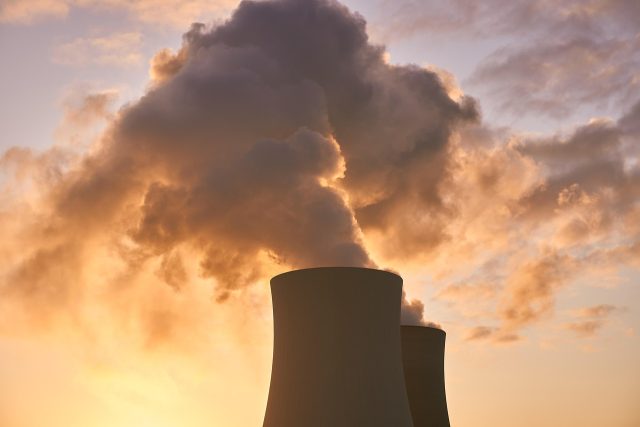
As France, Germany, and the UK trigger the UN “snapback” mechanism, Europe balances pressure on Tehran with diplomatic risks
Europe has entered a critical phase in its handling of the Iranian nuclear issue, as France, Germany, and the United Kingdom (the E3) have formally notified the United Nations Security Council of their intent to trigger the “snapback” mechanism on sanctions against Tehran. The move, made under Resolution 2231, could see the return of punitive measures suspended since the 2015 Joint Comprehensive Plan of Action (JCPOA). The Council has 30 days to decide whether to reactivate sanctions.
While the European Union frames the decision as a necessary step to address Iran’s continued nuclear activities, the initiative has exposed Brussels to heightened geopolitical pressures, with Russia and China firmly opposing the move and Iran promising retaliation. The next month is therefore seen as a decisive window in which diplomacy may either avert escalation or give way to renewed confrontation.
Russia and China Push Back
The European decision has drawn sharp criticism from Moscow and Beijing, both of whom argue that new sanctions would be destabilizing. Russia warned the E3 to reconsider, cautioning that punitive measures “could lead to another tragedy.” China, in turn, stressed that activating the mechanism “would not be constructive” and could derail ongoing efforts at dialogue.
Guo Jiakun, a spokesperson for China’s Foreign Ministry, emphasized that Beijing would “continue to maintain an objective and fair position, actively encourage peace, and promote dialogue.” Both powers remain committed to shielding Tehran from Western pressure, underlining the deep divisions among permanent members of the UN Security Council.
Europe’s Tightrope
For the EU, the move underscores both resolve and vulnerability. On one hand, the E3 have signaled that Iran’s nuclear activities can no longer go unchallenged, particularly as Tehran has advanced enrichment beyond JCPOA limits. On the other hand, Brussels must manage the risk of alienating partners like Russia and China, whose cooperation is indispensable for any lasting diplomatic solution.
High Representative for EU Foreign Policy Kaja Kallas struck a cautious tone, framing the next 30 days as an opportunity rather than an ultimatum. “We are entering a new phase,” she said in Copenhagen. “These 30 days give us the chance to truly find diplomatic paths toward a solution.” Her words highlight the EU’s dual strategy: exerting pressure through the possibility of sanctions while leaving the door open for renewed negotiations.
Iran’s Defiance
Unsurprisingly, Tehran has rejected the European démarche. Iranian Foreign Minister Abbas Araghchi condemned the move as “illegal and unjustified,” warning that the Islamic Republic would respond “appropriately to protect its national interests.” Iran’s Foreign Ministry went further, denouncing the E3’s notification as a violation of the JCPOA’s Dispute Resolution Mechanism and as an illegitimate attempt to reinstate annulled UN resolutions. Tehran’s position is clear: any return to sanctions will be met with countermeasures, raising the prospect of further escalation.
Security Concerns for Europe
The tension is not just theoretical. In Berlin, the German Foreign Ministry has urged its citizens to leave Iran immediately, citing the risk of retaliatory measures. Officials warned that German interests and nationals could face reprisals should sanctions be reimposed. The embassy in Tehran is currently operating with limited consular capacity, underscoring the heightened sense of vulnerability. This advisory illustrates how directly Europe’s decisions on Iran reverberate back onto its own citizens and security. For the EU, the challenge is not only geopolitical but also domestic: ensuring that policy choices abroad do not put European lives at risk.
Europe’s Broader Strategic Calculus
The E3’s move also reflects broader European anxieties about security architecture and credibility. Since the U.S. withdrew from the JCPOA in 2018, Europe has attempted to keep the deal alive through dialogue and partial economic engagement with Tehran. But Iran’s continued breaches and the shifting global balance—exacerbated by the war in Ukraine and strained EU-Russia ties—have made patience harder to sustain. By opting to pursue the snapback mechanism, the E3 seek to reassert European agency on security matters. Yet the bloc must navigate a perilous landscape: without U.S. re-entry into a diplomatic framework, and with Russia and China aligned against new sanctions, Europe risks being isolated in the enforcement of measures it deems necessary.
Outlook: Thirty Days of Uncertainty
The next month will be decisive. If the UN Security Council allows sanctions to snap back, Iran is likely to escalate, and European citizens in the region may face greater risks. If diplomacy gains traction, the EU may claim credit for steering the crisis back toward negotiation.
For Europe, the challenge is acute: it must demonstrate firmness against nuclear proliferation while preserving its role as a credible mediator. The E3’s gamble illustrates both the determination and the limits of European power in a fragmented international system. Whether the coming weeks yield renewed dialogue or deepen confrontation, one thing is clear: Europe’s handling of Iran’s nuclear issue will shape not only its relations with Tehran but also its standing as a global diplomatic actor.



 Subscribe
Subscribe